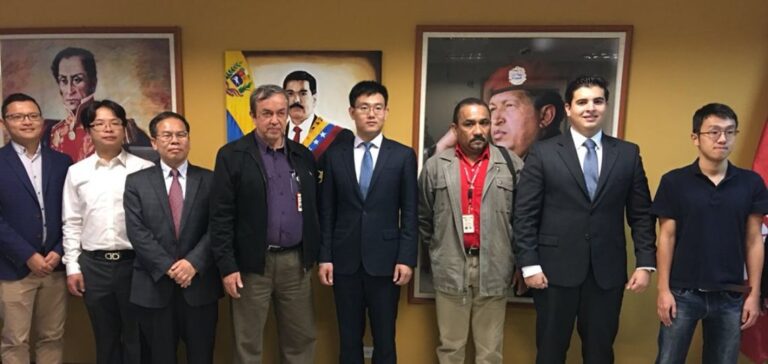Venezuela recently awarded significant oil contracts to two Chinese companies, Anhui Erhuan Petroleum Group and Kerui Petroleum.
These agreements are part of the country’s strategy to revitalize its oil sector ahead of the July 28 presidential elections.
Collaboration with Anhui Erhuan Petroleum Group
Anhui Erhuan Petroleum Group, based in Wuhu Annui, China, has been selected as Petróleos de Venezuela’s (PDVSA) partner in the Petrokariña joint venture.
This collaboration targets the Acema, Oritupano-Leona and Mata oil fields, located in eastern Venezuela, between the states of Monagas and Anzoátegui.
These fields contain light oil reserves, essential for boosting national production.
The Petrokariña joint venture, initially made up of PDVSA, Petrobras and Inversora Mata, saw its Brazilian and Argentine partners withdraw due to PDVSA’s accumulated debts.
With the entry of Anhui Erhuan, Petrokariña hopes to boost production, currently estimated at 200 barrels a day.
Investment by Kerui Petroleum
Kerui Petroleum, a leading Chinese manufacturer of oilfield services and equipment, will invest in the development of the Ayacucho 2 field, located in the Orinoco belt.
This field holds some 29 billion barrels of extra-heavy oil, a resource that remains largely untapped.
Kerui Petroleum has been appointed to develop this strategic field in order to help increase the country’s oil production.
This investment is crucial for Venezuela, which is seeking to attract foreign capital despite international sanctions.
Political and economic context
These oil contracts come against a backdrop of re-imposed US sanctions against Venezuela, accusing President Nicolás Maduro of manipulating elections.
Despite these sanctions, the Venezuelan government is actively seeking to attract foreign investment to stabilize and increase its oil production.
Maduro hopes to bolster his image ahead of the July 28 presidential elections by demonstrating progress in the energy sector.
The Petropiar joint venture between PDVSA and Chevron recently saw its operations extended by 15 years, with production reaching 89,600 barrels a day in June.
Other partnerships and prospects
In addition to Chinese companies, Venezuela has signed contracts with other international companies, including New Stratus Energy in Canada, GoldPillar in the British Virgin Islands and Jindal Poweren in India.
An agreement was also signed with Trinidad and Tobago to develop the Cocuina-Manakin offshore natural gas project.
At the signing ceremony, Maduro emphasized the guarantee of legal certainty and stability for all oil and gas projects, claiming that many investors have already begun to flock under special laws.
Analysts at S&P Global Commodity Insights estimate that Venezuela will produce around 800,000 barrels of crude oil and condensate per day until 2025, despite US sanctions and internal political challenges.
These efforts to attract foreign capital could pay off in the long term, but investment opportunities remain limited due to persistent sanctions.






















